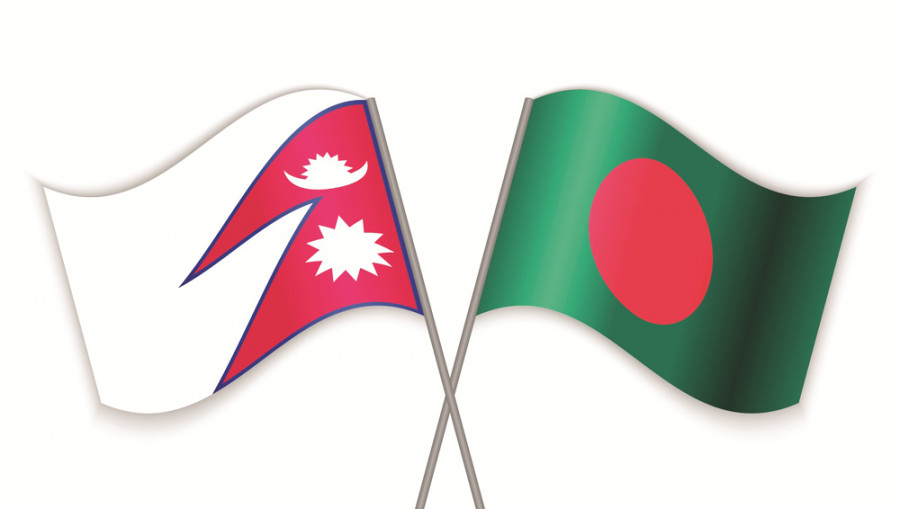KATHMANDU: In a significant development, Bangladesh’s interim government has expressed renewed interest in importing 40 megawatts (MW) of electricity from Nepal, following political disruptions that temporarily halted the initial agreement. The electricity trade deal, which was scheduled for July 29, 2024, during the tenure of former Bangladeshi Prime Minister Sheikh Hasina, was put on hold due to internal political unrest in Bangladesh.
The agreement was part of a tripartite deal between Nepal, India, and Bangladesh to facilitate the cross-border trade of electricity. However, political turmoil in Bangladesh, including protests against special reservations in government services, led Hasina to resign from her post on August 6. This raised uncertainty about the future of the electricity trade deal, which was seen as a milestone in regional energy cooperation.
Despite these disruptions, Mohammad Yunus, the head of Bangladesh’s interim government, has expressed strong support for moving forward with the electricity import from Nepal. According to Nepal’s Ministry of Energy, Water Resources, and Irrigation, while most of the necessary paperwork is already complete, formal discussions and final signing of the agreement remain. Informal talks are reportedly ongoing, with a tentative goal of concluding the deal within September 2024.
Spokesperson for the Ministry of Energy, Chiranjivi Chattaut, explained that discussions are currently underway to set a suitable date for the agreement, with efforts being made to align the schedules of the three countries involved. “We had previously fixed the date for July 29, but due to political events in Bangladesh, it was postponed. Now, we are coordinating with the new Bangladeshi government to finalize a date that works for all parties,” Chattaut stated.
Agreement for 40 MW Electricity Trade to be Finalized Soon
The tripartite agreement between Nepal, India, and Bangladesh is set to involve the Nepal Electricity Authority (NEA), India’s NTPC Vidyut Vyapar Nigam (NVVN), and Bangladesh’s Power Development Board (BPDB). The electricity, produced in Nepal, will be transmitted via India to Bangladesh. Nepal will export electricity to Bangladesh for five months during the monsoon season, from June 15 to November 15, through the Dhalkebar-Muzaffarpur 400 kV cross-border transmission line.
Under the terms of the agreement, Nepal is set to export a total of 144,000 megawatt-hours annually, earning approximately USD 9.216 million (around NPR 1.23 billion) in revenue. The electricity will be metered at Muzaffarpur in India, with the Nepal Electricity Authority responsible for any technical losses along the transmission line. From Muzaffarpur, the electricity will be transmitted through India’s Behrampur-Bheramara 400 kV transmission line to reach Bangladesh.
Energy Export Pricing and Cooperation
The pricing for the electricity has been set at 6.40 US cents per unit, equivalent to NPR 8.55 per unit, with Nepal set to earn a significant amount in export revenues. Nepal’s electricity will primarily come from the 25 MW Trishuli Hydropower Project, built with Indian assistance, and the 22 MW Chilime Hydropower Project. Both projects have already secured approval to export electricity to India.
Earlier in 2024, Bangladesh’s BPDB had called for bids to purchase 40 MW of electricity from Nepal for a five-year period, issuing a tender notice on January 1. Following this, the Nepal Electricity Authority submitted its bid documents in late January, and a meeting between the evaluation teams of NEA and BPDB was held in Dhaka on February 22.
Nepal initially proposed a price of 6.70 US cents per unit. However, during bilateral talks at the SAARC energy meeting held in Singapore, Bangladesh agreed to a slightly reduced price of 6.40 US cents per unit. Despite the pricing agreement, the deal’s formal approval came only on June 12, 2024, when Bangladesh’s Cabinet Committee on Government Procurement (CCGP) approved the final price.
Final Stages of Agreement
Following the price approval, BPDB sent the draft agreement for electricity sales to Nepal’s Electricity Authority, which was reviewed and accepted. Both sides are now working to finalize the signing date. Bangladesh’s Economic Affairs Committee had earlier granted approval for the import of 40 MW of electricity from Nepal in December 2023.
This electricity trade agreement marks an important step in regional cooperation, with Nepal, Bangladesh, and India working together to bolster energy security. For Nepal, this deal opens up new avenues for energy export, while Bangladesh benefits from a reliable source of clean, renewable energy. The agreement also strengthens the economic ties between the three South Asian nations and supports broader regional integration efforts.
With the interim government of Bangladesh now backing the initiative, the successful conclusion of this deal is expected soon, potentially opening the door for further cross-border energy cooperation in the region.

